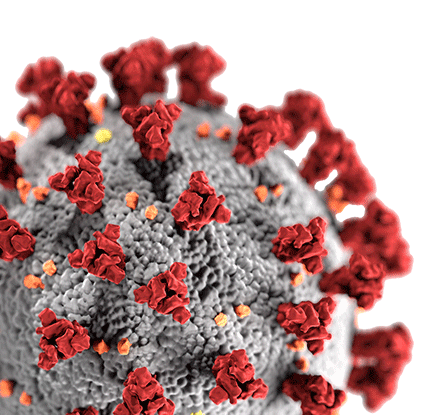Could requiring a COVID-19 vaccination for school or work convince more Americans to get vaccinated?
Editor’s Note (8/17/2020): This article includes findings from our fifth wave of data collection that fielded July 23 through 28. This fifth wave collected another 1,000 completes using a census-balanced, national non-probability sample. The new information, shared below, expands on our June findings regarding American attitudes towards a COVID-19 vaccine. Learn more about the ICF COVID-19 Monitor Survey of U.S. Adults.
On July 23, the United States reached over 4 million confirmed cases of COVID-19 and approximately 144,000 coronavirus deaths. The government and many pharmaceutical companies are racing to launch clinical trials to develop and produce a safe and effective vaccine, with Phase 3 clinical trials beginning on July 27. But in June, we reported that only 31% of Americans indicated that they were very likely to get the coronavirus vaccine as soon as an FDA-approved one becomes available (which was essentially unchanged from the 34% reported in May). With increasing cases, including the continued presence of hot spots in the southern, mid-western, and western United States, we wanted to examine 1) whether this trend changed in July, and 2) whether Americans feel that COVID-19 vaccinations should be required for school or work.
American attitudes toward a COVID-19 vaccine in July were unchanged compared to May and June.
Despite the rise in cases and deaths, fewer than a third of adults (31%) in July said that they would be very likely to get the coronavirus vaccine as soon as an FDA-approved one becomes available, while another 31% said that they would be somewhat likely. These rates were essentially unchanged from May and June.

Vaccination likelihood increases if the vaccine is free, if there are no side effects within 6 months, if there is a second wave of coronavirus, or if employers require it.
To better understand the relatively low rate of willingness to receive an FDA-approved vaccine for COVID-19 as soon as it is available, we continued to include three additional scenarios after our base question. Those who did not say that they were very likely to take the vaccine in the first question were asked how likely they would be to receive the vaccine if it were free, to receive it within six months if there were no side effects or other problems, or to receive it if there were a second wave of coronavirus. Rates of likelihood to get the coronavirus vaccine increased in all three scenarios, as shown in the table below.
Another possible avenue for increasing vaccinations when an FDA-approved vaccine for COVID-19 becomes available would be employer requirements. In July, we asked respondents that were not very likely to take the vaccine when it is first available, how likely they would be to get the vaccine if their employer required it. The percentage of adults who indicated they would be very likely increased to 58% under this scenario, with another 18% being somewhat likely.

These findings suggest that there are several scenarios in which a majority of adults might be very willing to be vaccinated with an FDA-approved vaccine for COVID-19. Under each of these scenarios in July, the proportion of adults who indicate that they would be at least somewhat willing to be vaccinated was 70% or higher. There was no statistically significant difference between June and July scenarios related responses.
Surprisingly, most Americans who strongly agree with anti-vaxxers express a willingness to get a COVID-19 vaccine.
The topic of vaccines is highly charged in the United States, with strong proponents and detractors. As our previous vaccine findings revealed, the attitudes toward anti-vaxxers are related to the likelihood of getting a vaccine as soon as one becomes available. In July, only 30% of those who more agree than disagree with anti-vaxxers are very or somewhat likely to get a vaccine for COVID-19 as soon as it is available, as compared to 52% of those who more disagree than agree, and further 78% of those who strongly disagree with the anti-vaxxers. However, surprisingly, most Americans (61%) who strongly agree with anti-vaxxers are very or somewhat likely to get a vaccine for COVID-19 as soon as it is available.

The apparent conflict of both strongly agreeing with anti-vaxxers and being more likely to get a COVID-19 vaccine as soon as one becomes available may be related to different inclinations towards adult and child vaccinations. In July, for the first time, we asked respondents whether they thought schools should require a COVID-19 vaccination for all children (unless medically exempt) when an FDA-approved vaccine becomes available. Overall, only a little more than half of all adults agreed either strongly (33%) or somewhat (24%). This difference is more pronounced when examining agreement with anti-vaxxers. Nearly half (48%) of those that strongly agree with anti-vaxxers strongly disagreed that a COVID-19 vaccine should be required of children who attend schools.

Policy implications
For the third month in a row, our findings show that Americans remain hesitant to embrace a COVID-19 vaccine as soon as an FDA-approved one becomes available. How can government officials—whose hopes of steering the country out of the pandemic hinge in large part on widespread adoption of the vaccine—change public sentiment? A convincing communications campaign (perhaps one that relies on influencers) will play a crucial role in the next six months. Our conclusions from the May report on immunization remain unchanged. For maximum impact, it will be important for scientists and public health officials to lead the communications about the vaccine with the public—and with great urgency.
Learn more about the ICF COVID-19 Monitor Survey of U.S. Adults.
